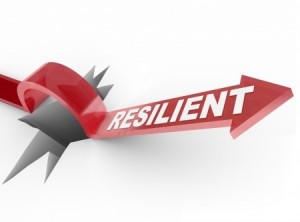By Rose O. Sherman, EdD, RN, NEA-BC, FAAN
 Today’s healthcare environment is challenging for leaders at all levels. There are not and probably never again will be enough resources to ensure high-quality outcomes for all patients. We are doing our best but it can be frustrating. Healthcare is a highly regulated industry and an intense focus on performance measures is an inevitable part of our future. It is not surprising that joy in work is now a major focus of the Institute of Healthcare Improvement. Without this joy, quality will elude us and workforce disengagement will increase. Staff depends on their leaders for hope and optimism.
Today’s healthcare environment is challenging for leaders at all levels. There are not and probably never again will be enough resources to ensure high-quality outcomes for all patients. We are doing our best but it can be frustrating. Healthcare is a highly regulated industry and an intense focus on performance measures is an inevitable part of our future. It is not surprising that joy in work is now a major focus of the Institute of Healthcare Improvement. Without this joy, quality will elude us and workforce disengagement will increase. Staff depends on their leaders for hope and optimism.
The ability to stay resilient is now a critical new competency for nurse leaders. Resiliency is important if you want a long and productive leadership career. You will never be able to eliminate all the stress or erase life’s difficulties. Resiliency is the ability to bounce back from setbacks and challenges. Leaders who are resilient view difficulties as challenges not paralyzing events. They are more effective in maintaining perspective. They don’t drift into catastrophic thinking in times of crisis.
Our experiences with adversity impact our resiliency as does our natural levels of optimism, the level of impact that an experience has on our lives, our social support system and our propensity to ruminate. Martin Seligman, a psychiatrist and national expert on resilience, believes that reframing how we explain challenges to ourselves is the key to developing resilience. Situations are rarely as bad or good as we frame them. Seligman urges that we reflect carefully on what stories we tell ourselves about the challenges in our environment. Changing the storyline can change our perspective.
Here are 10 tips from the experts that can help you to become more resilient in your leadership or personal life during tough times:
1. Build positive beliefs in your abilities and focus on your signature strengths.
2. Find a sense of purpose in your work and life every day.
3. Develop a strong supportive network of family, friends and professional colleagues.
4. Embrace change as inevitable and recognize what is in your control and what is not.
5. Stay optimistic in the face of dark periods in your life – believe that things will get better and brighter days are ahead.
6. Nurture yourself with the right foods, exercise, recreation, and sleep.
7. Develop your problem-solving skills to overcome challenges.
8. Establish small and achievable goals.
9. Practice thought awareness so you don’t get into a cycle of negative thoughts.
10. Maintain perspective – don’t blow a setback out of proportion – instead, learn from it.
To develop resilience, you need to stop seeing yourself as a victim and be proactive in your own recovery. Ultimately, how we view adversity and stress strongly affects how we succeed. A resilient mindset is essential to successful leadership – in 2019 and beyond.
Rose Sherman’s first book, The Nurse Leader Coach: Become the Boss No One Wants to Leave, will be published in January 2019.
Read to Lead
Cherry, K. (undated article – About.com Psychology). 10 ways to become more resilient.
Mindtools Website Developing resiliency: Overcoming and growing from setbacks
Seligman, M. (2011). Building Resilience. Harvard Business Review, 89(4), 100-106.
© emergingrnleader.com 2017


 LinkedIn
LinkedIn Instagram
Instagram